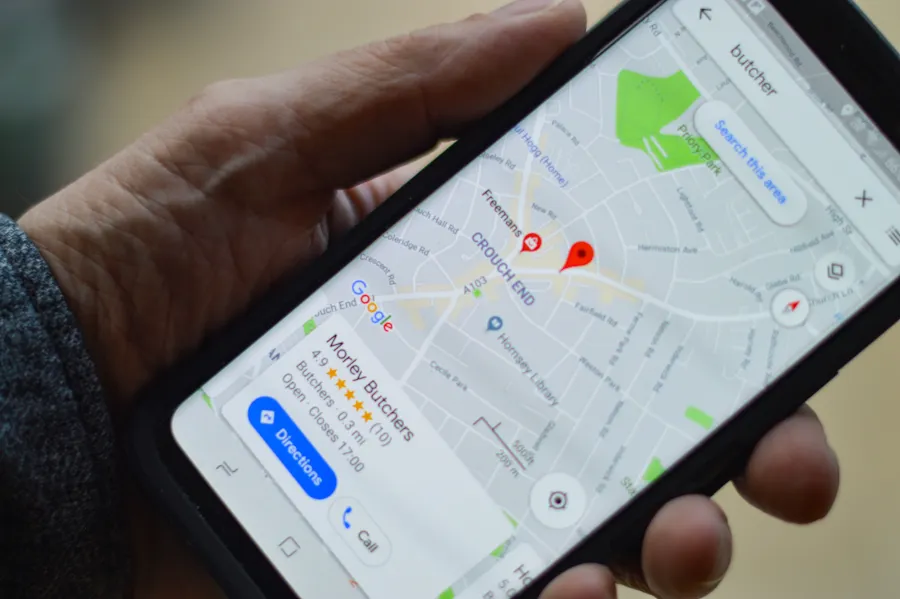Local SEO is an essential component of a business’s online presence. It helps businesses to appear in search results when users search for products or services in their local area. In other words, the goal of a successful Local SEO campaign should be to make the business a more authoritative resource on the maps applications used by their community (Google Maps, Apple Maps, Bing Places, etc). Conducting a local SEO audit can help businesses identify areas for improvement and optimize their local search presence. In this article, we’ll discuss what local SEO is, how to conduct a local SEO audit, and provide tips for optimizing your local search presence.
I. What is Local SEO?
Local SEO refers to the process of optimizing a business’s online presence to appear in local search results. It includes a range of factors such as optimizing a business’s website for local keywords, creating and optimizing a Google Business Profile, building local citations, and encouraging customer reviews. Local SEO is important for businesses that want to attract local customers and improve their online visibility in their local area.
The best indicators that a Local SEO campaign has been successful is there will be an uptick in call volume, appointment bookings, increased foot traffic, and reviews. Unlike traditional Search Engine Optimization (SEO), Local SEO is all about engagement via the maps applications used by your customer base. In fact, this is one of the best ways for smaller, independent companies to compete against larger corporations. Instead of fighting them in the organic search engines results pages, we can intercept potential customers when they are looking for local solutions to their needs!

II. How is Local SEO Done?
To improve their local search presence, businesses can take the following steps:
- Optimize Your Website for Local Keywords: This involves optimizing your website content, titles, descriptions, and headers for local keywords related to your business.
- Create and Optimize Your Google Business Profile: This involves creating a Google Business account, providing accurate and complete information about your business, and optimizing your profile with photos, posts, and reviews.
- Build Local Citations: This involves listing your business on local directories, such as Super Pages, Data Axle, Yellow Pages, and Foursquare (to name a few), and ensuring that your business information is accurate and consistent across all listings.
- Encourage Customer Reviews: This involves encouraging customers to leave reviews on your Google Business Profile and other review sites. Positive reviews can help improve your local search rankings.
In short, Local SEO is a targeted optimization of a business’ online presence in a geographic area that they reside in. In order to make a bigger impact locally, we have to demonstrate that we are credible, trustworthy, knowledgeable, and a better resource to our customer-base.
III. What is a Local SEO Audit?
A Local SEO audit is a process of evaluating a business’s local search presence to identify areas for improvement. The audit typically involves the following:
- Analyzing a business’s website
- Google Business Profile
- Local citations
- Customer reviews to identify technical issues
- Optimization opportunities
- Other factors that may be impacting their local search rankings
Overall, a Local SEO audit is a comprehensive analysis of your business’s online presence, identifying areas for improvement to optimize your local search rankings and attract more local customers.

IV. What is a Local SEO Checklist?
A local SEO checklist is a tool that businesses can use to conduct their own local SEO audit. It typically includes a list of items to check, such as website optimization, Google Business Profile optimization, local citations, and customer reviews. By following a local SEO checklist, businesses can ensure that they are optimizing all the key factors that influence their local search rankings.
What are the 4 main areas you want to audit?
1. Website Optimization:
- Check website for technical issues, such as broken links, slow load times, and duplicate content
- Optimize website content, titles, descriptions, and headers for local keywords
- Add schema markup to website to help search engines better understand your business and its location
2. Google Business Profile Optimization:
- Verify and complete your Google Business Profile
- Add high-quality photos and videos to your profile
- Post regular updates and promotions to your profile focusing on the users in your local area
- Encourage customers to leave reviews on your profile
3. Local Citations:
- List your business on local directories
- Ensure that your business information is accurate and consistent across all listings
- Build local citations by getting your business listed on other relevant websites and blogs
4. Customer Reviews:
- Encourage customers to leave reviews on your Google Business Profile and other review sites
- Respond promptly and professionally to all customer reviews, both positive and negative

V. Which Tool is Best for a Local SEO Audit?
There are several tools available for conducting a local SEO audit, including:
- Google Business Profile: The Google Business Profile platform provides businesses with a wealth of information about their local search presence, including insights into how customers are finding and interacting with their business.
- Moz Local: Moz Local is a tool that helps businesses manage their local listings and citations, monitor their online reputation, and track their local search rankings.
- BrightLocal: BrightLocal is a comprehensive local SEO tool that includes features such as local search rank tracking, local citation building, and review monitoring.
VI. What is Local SEO with Example?
To understand local SEO in action, let’s take the example of a local pizza restaurant in New York City. The restaurant can improve its local search presence by:
- Optimizing its website for local keywords such as “best pizza in NYC” and “pizza delivery in New York City.”
- Creating and optimizing its Google My Business profile by adding photos, posting regular updates and promotions, and encouraging customers to leave reviews.
- Building local citations by listing the restaurant on local directories such as Yelp, Zagat, and Foursquare, and ensuring that its business information is accurate and consistent across all listings.
- Encouraging customers to leave positive reviews on its Google My Business profile and other review sites, and responding promptly and professionally to all customer feedback.
Conclusion:
Conducting a local SEO audit and optimizing your local search presence can help your business attract more local customers and improve your online visibility in your local area. By following the tips and checklist provided in this article, businesses can ensure that they are optimizing all the key factors that influence their local search rankings.
Should you want help from industry veterans to conduct a FREE Audit of your local online presence, reach out to the team at CodingIT! We would be delighted to help!
